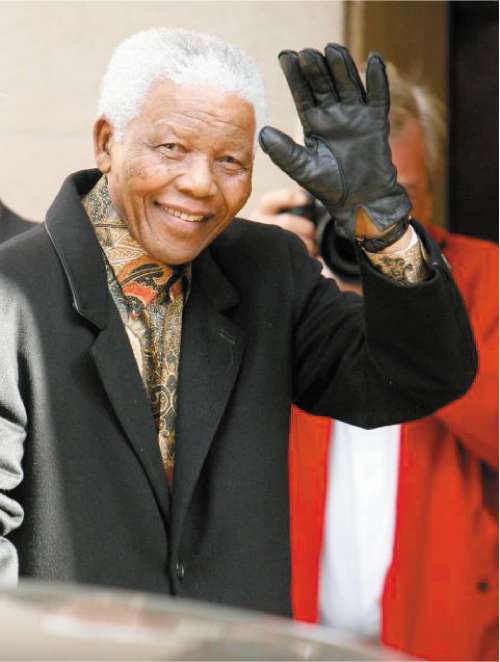Speak out on London visit, Nelson Mandela urged

Your support helps us to tell the story
From reproductive rights to climate change to Big Tech, The Independent is on the ground when the story is developing. Whether it's investigating the financials of Elon Musk's pro-Trump PAC or producing our latest documentary, 'The A Word', which shines a light on the American women fighting for reproductive rights, we know how important it is to parse out the facts from the messaging.
At such a critical moment in US history, we need reporters on the ground. Your donation allows us to keep sending journalists to speak to both sides of the story.
The Independent is trusted by Americans across the entire political spectrum. And unlike many other quality news outlets, we choose not to lock Americans out of our reporting and analysis with paywalls. We believe quality journalism should be available to everyone, paid for by those who can afford it.
Your support makes all the difference.As condemnation of Robert Mugabe grew louder yesterday, Nelson Mandela checked in at the Dorchester Hotel in London, ahead of his 90th birthday celebrations. The former South African president is often cast in the role of Africa's moral guardian, but on the subject of Zimbabwe he has been notable by his silence.
"Every voice is needed now," said William Gumede, a South African political analyst. "And Mr Mandela's is one that can hardly be bettered in terms of moral authority." So why has Mr Mandela shied away from commenting publicly on the crisis engulfing South Africa's neighbour?
He may be calculating that his words will have little effect. Mr Mandela has long been demonised by Zimbabwe's ruling Zanu-PF party, so there is little chance of him being able to sway party leaders towards a more conciliatory line. In fact, given the long history of rivalry between the two figureheads of southern Africa's liberation struggles, any words from Mr Mandela could make Mr Mugabe simply dig in his heels.
But another consideration is the loyalty Mr Mandela has to his successor President Thabo Mbeki, who has been mediating the stillborn negotiations between Mr Mugabe and the Zimbabwean opposition. The two men have an unwritten agreement whereby Mr Mandela does not tread on Mr Mbeki's turf. The one occasion Mr Mandela violated that pact was over South Africa's spiralling HIV crisis in 2000, and Mr Mbeki reportedly refused to speak to him for two years, although the government's Aids policy did eventually change.
Questions about Zimbabwe are likely to dog Mr Mandela during his birthday celebrations, which culminate on Friday with a three-hour concert in Hyde Park. At his age, Mr Mandela may well feel he deserves a rest.
Subscribe to Independent Premium to bookmark this article
Want to bookmark your favourite articles and stories to read or reference later? Start your Independent Premium subscription today.
Join our commenting forum
Join thought-provoking conversations, follow other Independent readers and see their replies
Comments